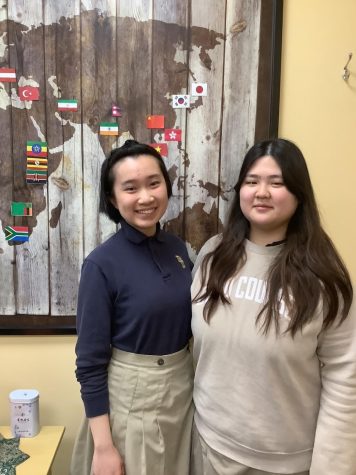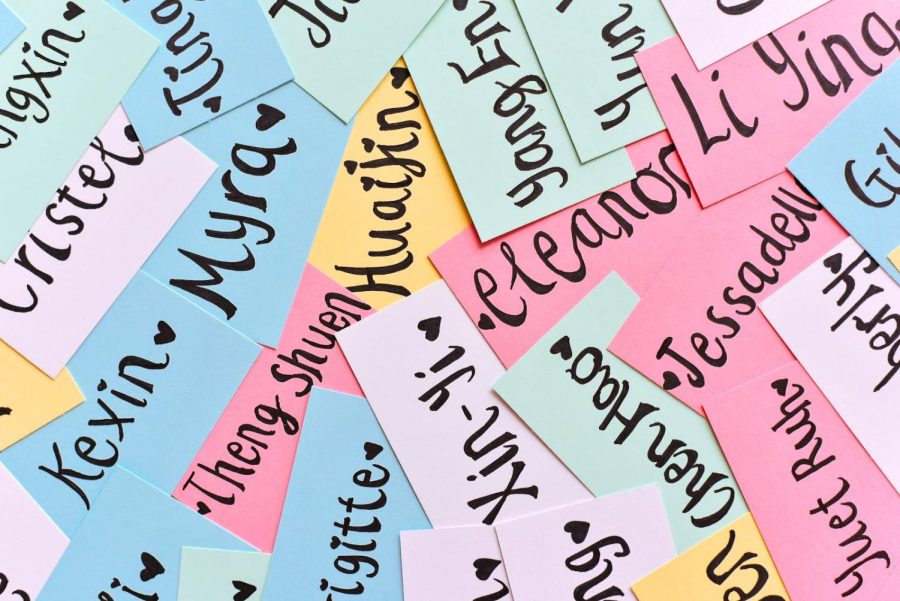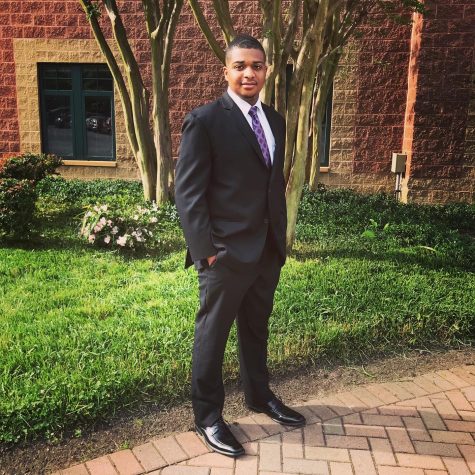(The interactive audio element of this article works best in Chrome.)
It’s ironic how society pushes for diversity and inclusion, but creates an environment where those with non-white sounding names have to pick an alias when ordering from Panera.
The mispronunciation of my last name is not new to me. In fact, I’ve heard so many different variations of my last name that sometimes I’ve worried about whether I pronounced it right. Therefore, growing up with a first name that’s easy to pronounce and Western sounding felt like a relief because I already had a hard last name. After years and years of incorrect pronunciations, I learned to just go with it. I got tired of correcting people and I would spell out my last name without waiting for them to ask. It felt like such a small mistake and I feared being labeled as ‘sensitive’ or ‘difficult.’ My experience is just one example of the long-ignored issue of name mispronunciation.
Although the action of mispronouncing someone’s name seems like no big deal, its effects can be quite detrimental. Xian Zhao, a postdoctoral fellow at the University of Toronto, researches ethnic name pronunciation and says that constantly mispronouncing an unfamiliar name incorrectly is a form of implicit discrimination. This action conveys the message that “you are minimal,” says Zhao. Zhao’s research found that about half of Chinese international students surveyed, who attended American universities, had adopted Anglicized versions of their given name to make it easier for others to pronounce them. Zhao discovered a pattern showing “the use of an “Anglo” name is associated with lower levels of self-esteem which can be an indicator for lower levels of health and wellbeing.”
At Good Counsel, the majority of Chinese and Korean international students adopt Western names. Yet, some students choose to stay with their ethnic name. Curious as to why, I sat down with two GC international students.
Minseo Kweon, Class of 2022
Originally, she chose the name ‘Kate’ while attending an English academy as her teacher gave her a list of American names to choose from. However, Minseo Kweon 22’ explains that she wanted to go by her Korean name upon arriving at Good Counsel. While she felt very awkward going by the name Kate, she also worried about other students being able to pronounce it. In hopes of avoiding all awkwardness on both sides, Minseo decided to go by Kate. “When teachers first meet us [international students] and take attendance they see my name, they also feel nervous as they realize that it’s not an American student. So I think it’s easier to just use Kate as my name here.” Minseo explains that she doesn’t feel uncomfortable with having to repeat pronunciations of her name and believes that people should not let the fear of mispronunciation stop them from trying as well as asking for corrections.
The decision to use a Western name rather than one’s ethnic name carries over into other public settings. Minseo reveals, “In Starbucks, I always say Kate because everytime [I go] they’re [Starbucks employees] in a rush and I don’t want to make a situation.”
When asked whether she planned on going by her Korean name or Western name in college, Minseo shared, “If I go to an American university, I think I will try to introduce myself with my Korean name first. If they [college students and professors] cannot pronounce or remember it then I will let them call me Kate. But I want to try to have them call me by my Korean name.”
Jiexi Lin, Class of 2022
Similar to Minseo, Jiexi wanted to embrace her heritage and go by her Chinese name at Good Counsel. However, ethnic names are more complex as Jiexi emphasizes, “It’s not just a name. It goes much beyond a name. It has the hidden history of my family and Chinese tradition.” Unlike the English language, every single Chinese character has a different meaning. Jiexi provides an example, “ [In] my first name, Jiexi, the ‘jie’ means modesty and carefulness. The ‘xi’ means brightness and light.” In keeping her ethnic name, Jiexi shares her culture with GC.
.Jiexi explains, “The reason why I choose to stick with Jiexi, my Chinese name, is because it’s actually quite similar to the original American name I chose, Jessie.” Therefore, Jiexi is fine with being called Jiexi or Jessie. She adds, “As long as people pronounce my name in an identifiable way, I’m fine.” However, Jiexi says, “I like to encourage [people] to say it [Jiexi] more, even if they say it a little wrong in the beginning. By encouraging that, they will feel more welcomed to say my name and be my friend.”

After hearing about the role of implicit bias in connection with ethnic name pronunciation, Jiexi offers her perspective. She explains, “I think it depends on the speaker’s attitude. If the speaker is really genuine, but cannot get it right, I truly understand that. [However], there are also people who are trying to make fun [of the ethnic name] and I think people can tell from their attitude.”
International students bring great value to the Good Counsel community. Jiexi points out, “When you come to America, it’s a ground of opportunity. People are able to share their cultural heritage with more people, without being criticized over it. I think this is also what makes society and our school more colorful. It’s that we have people from different cultural and ethnic backgrounds and together, they make this school better.”
Ms. Dunne adds, “The best thing to do is always use compassion, write down or practice proper pronunciation until you feel confident that you are saying your new friend’s ethnic name correctly.”
Names are intimate things because they reaffirm one’s identity. No one should have to wish they were born with an easier name or ask to go by their middle name. Names celebrate one’s ethnicity and culture. In order to fully address this issue, we must raise awareness. Since name mispronunciation is a form of implicit bias, educating others about your own personal experience or the issue in general is important.
In most cases, the perpetrator is unaware of their action’s impact. Usually the person does not have malicious intentions. Nevertheless, when you can pronounce a difficult name correctly you show respect and allyship. Names encapsulate who you are as a human being. Let’s always remember that.

Credits: https://www.bbc.com/worklife/article/20210108-the-signals-we-send-when-we-get-names-wrong


